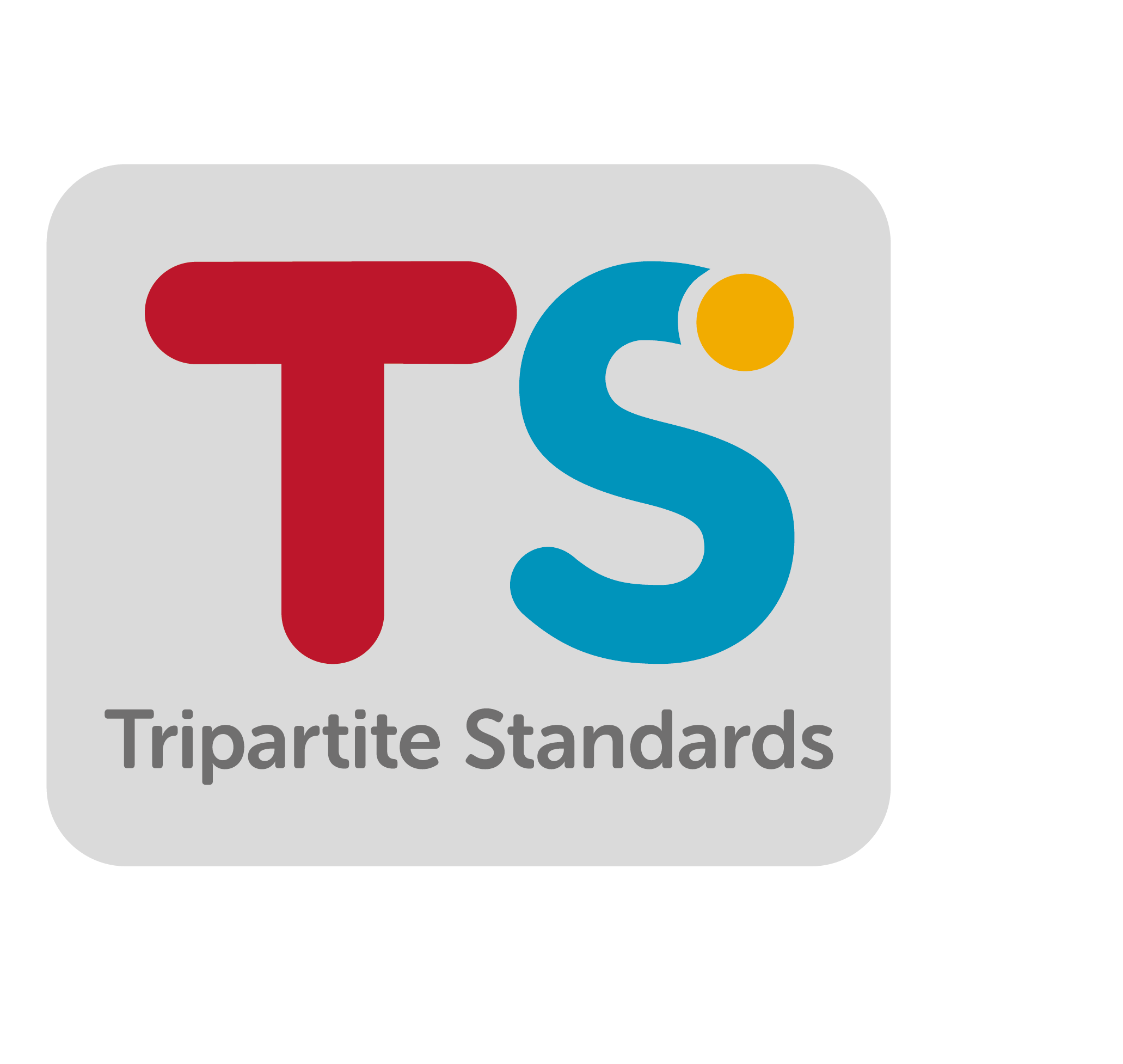Highlights from Budget 2024 Impacting Organizations and HR Leaders. EP Applicants New Minimum Qualifying Salary from Jan 2025
In our March newsletter, we bring you essential highlights from Budget 2024 that are poised to shape the landscape for organizations and HR leaders in Singapore. From Jan 1st, 2025, there will be an increase in the minimum qualifying salary for new EP applicants.
Dive deeper into the changing dynamics of the workforce as Gen Z and Millennials signal a readiness to trade jobs for better wellbeing. Uncover compelling employer branding strategies, providing invaluable insights for attracting and retaining top talent in an ever-evolving professional landscape.
–
Recruitment Agency Singapore
Highlights Which Will Impact Organizations and HR Leaders in Singapore
On February 16, 2024, Budget 2024 was unveiled, outlining key highlights set to impact organizations and HR leaders in Singapore. The focus areas include reducing wage gaps, bolstering skills upgrading, and fostering business growth. Explore how these updates will shape HR strategies and organizational dynamics.
Measures to Reduce Wage Gaps
1. Enhancements to Workfare Income Supplement (WIS) scheme
From 2025
- Increase in the qualifying income cap from $2,500 to $3,000, with a view to cover lower-wage workers, even as their wages grow.
- Amount of Workfare payouts will be raised. Lower-wage senior workers will qualify for a maximum annual payout of $4,900, up from $4,200 today.
2. Increasing the Local Qualifying Salary to Keep Pace with Wage Growth
- The Local Qualifying Salary (LQS), affecting a firm’s Work Permit and S Pass quota entitlement, will see an increase.
- The LQS for full-time workers will rise from $1,400 to $1,600, with the minimum hourly rate increasing from $9 to $10.50.
- Employers must ensure that all local employees in companies hiring foreign workers are paid at least the revised LQS.
3. Support for Employers Who Raise the Wages of Lower-wage Workers
- The Progressive Wage Credit Scheme (PWCS), launched in 2022 to co-fund employers in raising wages for lower-wage workers, will see increased co-funding levels from a maximum of 30% to a maximum of 50% this year.
- PWCS wage ceiling will rise from $2,500 to $3,000 in 2025, aligning with the Workfare qualifying income cap increase.
- These changes involve a $1 billion top-up to the PWCS Fund and address employers’ concerns about rising business costs.
Recruitment Agency Singapore
Enhanced Support for Skills Upgrading
1. Mid Career Re-Skilling
- SkillsFuture Level-Up Programme is introduced for Singaporeans aged 40 and above.
- $4,000 SkillsFuture Credit (Mid-Career) topup in May 2024, which can be used for selected industry-oriented training courses with better employability outcomes
- Mid-Career Enhanced Subsidy for another publicly-funded full-time diploma
- Up to $3,000 monthly training allowances for selected full-time courses.
2. ITE Progression Award
- Institute of Technical Education (ITE) graduates aged 30 and below will get a S$5,000 top-up to their Post-Secondary Education Account if they enroll in a diploma programme.
- They will also receive a further S$10,000 top-up in their Central Provident Fund (CPF) Ordinary Account upon attaining their diploma.
Recruitment Agency Singapore
Measures to Reduce Wage Gaps
1. Managing Rising Business Costs
- 50% Corporate Income Tax Rebate, capped at $40,000 for the FY 2024. Minimum benefit of $2,000 in case for companies that employed at least 1 local employee in 2023
- Enhanced Enterprise Financing Scheme
- SkillsFuture Enterprise Credit validity extended until Jun 2025
2. Strengthening Competitive Advantages
- Refundable Investment Credit Scheme is introduced to encourage companies to make high quality investments in key economic sectors and growth areas
- Top-ups for National Productivity Fund and Research, Innovation, and Enterprise 2025 (RIE2025) plan to bolster the nation’s productivity and push the boundaries of innovation across various sectors.
- Assisting local firms in connecting to global supply chains, competing in international markets, and growing to achieve industry leadership.
3. Supporting Sustainability
- Increased support for green loans through the enhanced Enterprise Financing Scheme.
- The scheme’s scope will be expanded to assist more SMEs in adopting green solutions.
- Energy Efficiency Grant extended to include manufacturing, construction, maritime, and data centers and their users. This was initially introduced in 2022 for companies in the food services, food manufacturing, and retail sectors.
4. Investment in Emerging Technologies
- Over $1 billion will be invested in AI compute, talent, and industry development over the next five years to support and catalyze AI activities.
- This includes securing access to advanced chips vital for AI development and collaborating with leading companies globally to establish their AI Centres of Excellence locally.
Source: https://www.mof.gov.sg/singaporebudget/home/budget-2024 (mof.gov.sg)
Recruitment Agency Singapore
From 1st Jan 2025, Minimum Qualifying Salary For New EP Applicants to Increase
From 1st Jan 2025, Minimum qualifying salary for new Employment Pass applicants to increase.
EP qualifying salary for new applicants will rise to S$5,600, up from S$5,000.
Those working in the financial services sector, will have to earn a minimum of S$6,200 a month, up from S$5,500.
For EP renewal applications, the new qualifying salary will take effect a year later, on Jan 1, 2026.
The EP salary will increase with age, reaching up to $10,700 and $11,800 for mid-40s and financial sector workers respectively. The move aims to keep EP costs in line with local benchmarks, supporting fair employment practices and local workforce development.
Source: https://www.channelnewsasia.com/singapore/employment-pass-minimum-qualifying-salary-increase-416859 (channelnewsasia.com)
Recruitment Agency Singapore
j
The Power of Compelling Employer Branding
In today’s evolving work landscape, employer branding is the cornerstone of organizational success. With clarity, integrity, and tangible business value, your human capital becomes as crucial as financial assets.
LinkedIn research underscores the impact: strong employer brands yield 50% lower cost per hire and 28% higher retention rates. A robust employer brand isn’t just a luxury—it’s essential.
Key Elements:
- Shared Interest: Unify business priorities with employee motivations.
- Focused Attraction: Creatively communicate your value proposition to attract the right people.
- Meaningful Experiences: Embed themes into the workplace for day-to-day employee engagement.
Benefits of Employer Branding:
- See Clearer: Define your identity, appealing to job seekers and the broader workforce.
- Build Better: Attract the right candidates, reduce costs, and boost employee commitment.
- Perform Higher: Lower cost-per-hire, shorter time-to-fill, and improved quality of hire.
Where to Start:
- Thorough research: Quantify surveys, data analytics, and qualitative interviews.
- Core EVP: Develop a comprehensive employer brand system with authentic storytelling.
Performance Tips:
- Establish realistic, measurable KPIs.
- Stick with your strategy for long-term brand building.
Foster Trust:
In a competitive job market, a strong online reputation is crucial. Prioritize employer branding to build trust and credibility on platforms like Glassdoor or Indeed.
Employees are the foundation of value creation. Employer branding is not a luxury but a prerequisite for success.
Source: https://hrmasia.com/unlocking-high-performance-with-a-compelling-employer-brand/ (hrmasia.com)
Recruitment Agency Singapore
Gen Z and Millennials Are Ready to Swap Jobs For Better Wellbeing
According to Lifesum’s 2024 State of Healthy Eating and Wellbeing Report surveying 10,000 individuals, 71% of young professionals would leave their current job for one that supports their wellbeing. 69% believe they’d be more productive in a healthier environment, and 31% are even open to a pay cut for it.
It’s a wake-up call for employers to prioritize employee wellbeing in their strategies. The report delves into trends like ‘snackable supplements’ and stress-relieving foods.
Top goals for these generations? Physical fitness, mental health, and sleep quality.
Toxic work culture? 75% are out!
Source: https://hrmasia.com/gen-z-and-millennials-willing-to-quit-jobs-for-better-mental-health (hrmasia.com)
Recruitment Agency in Singapore
Recruitment Agency Singapore
Disclaimer: Please use the information provided in this newsletter at your own discretion and risk. We are not responsible for any losses incurred by users in relation to the information provided in this newsletter and we seek your understanding.















